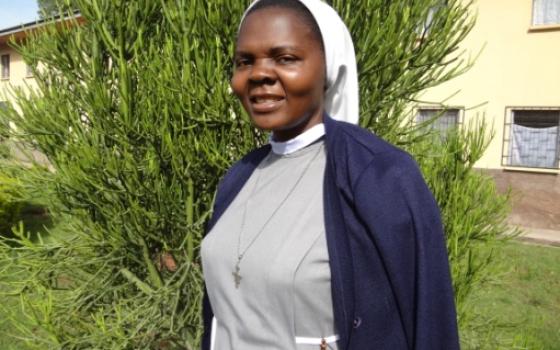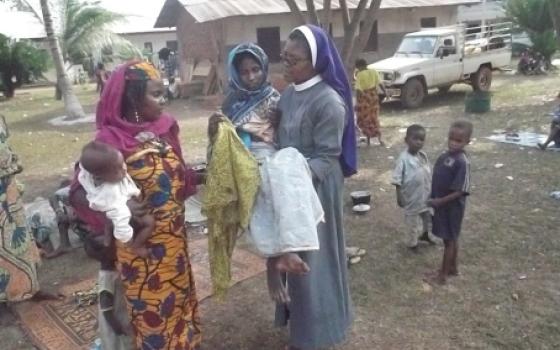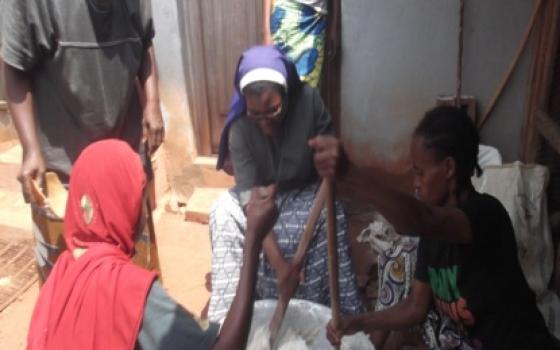Sr. Priscilla Yein Wulaiwimia helps keep the wheels turning at the provincial office of her order, the Tertiary Sisters of St. Francis, in Cameroon’s Northwest Region. Since 2007 she has served as provincial secretary.
Born the third of seven children, Wulaiwimia left her village at two to live with her grandmother, who cared for her during primary school. She joined the sisters after high school and eventually studied for a business diploma at the Kumasi Polytechnic in Ghana.
As provincial secretary, Walaiwimia’s work includes coordinating events and representing the community at public events and deliberations. She also works with development and public relations and is coordinator for the recently revived provincial magazine, The Tree. In a recent project, she wrote about efforts of the Tertiary Sisters of St. Francis to assist refugees from the conflict in the Central African Republic. Her photographs helped put a face on the crisis.
How do you approach your work?
Besides the congregational mission, which is ‘to be an empowering presence in the world,’ I have been greatly motivated and sustained by my personal vision for the church and society, which is culminated in the prayer of Jesus ‘that all may be one.’
This ardent desire moves me to go beyond all barriers, serving to create and maintain relationships and communion. All this flows from my personal relationship with the risen Christ, who is to me a friend.
What has been most satisfying?
The mere fact that my community stands by me in this vision, trusting, supporting and encouraging, gives me the fulfillment and insight to move on. When I work to restore relationships between conflicting individuals, families or communities, I am certainly fulfilled.
Can you describe or give examples of conflicting relationships you help repair?
During the preparation for some of our sisters to take final vows in 2013, we brought the families together and helped them reconcile, in hopes that they could single-heartedly offer their daughters to God for the final commitment.
We worked closely with them, especially those that had serious conflict. This worked well and they all ended up rejoicing as they danced to the altar as one family.
How do you work directly with families or communities in conflict?
I work more at the level of individuals. Invited or not, I find my way into the family by creating a friendly relationship.
I work hard to pre-empt the conflict, in one case taking the initiative to go to Muslims and invite them to participate in donations towards Central African Republic refugees, thus bringing the bishops, priests and religious to pray in the mosque.
What has been the most challenging?
Having to create time, space and the resources to achieve my objectives and vision has been most challenging in this mission. Quite some time and resources are needed to listen deeply to the concerned and to and maintain relationships.
How do you see God working in your world?
From my experience, God is always there and only needs my little sincere effort to cooperate with his grace. He takes over all and does it for me. The moment I get an inspiration, I sense already his presence; sometimes I even struggle to resist, but the inspiration “to act on something in a particular way” persists.
He has given me the eyes of the heart in such a way that I am able to notice and draw meaning from very ordinary things and circumstances. Above all, he places at my disposal, always, the right people with the rightful disposition of heart to understand and work with me for his greater glory.
[Joyce Meyer, PBVM, is the international liaison to women religious for Global Sisters Report.]



